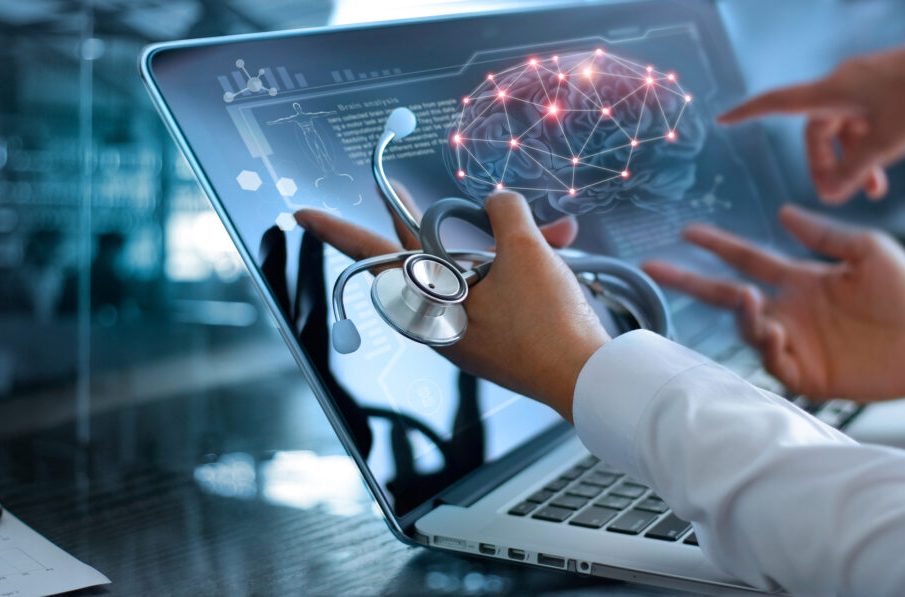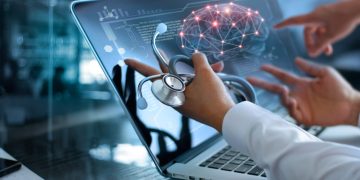Health Meets Technology: Revolutionizing Well-being in the Digital Era

The intersection of health and technology is transforming the way we approach wellness, diagnosis, treatment, and prevention. From wearable devices that monitor vital signs to artificial intelligence aiding in drug discovery, technology is creating a smarter, more connected healthcare system. Here’s a look at how health and tech are shaping the future.
1. Wearable Health Tech: Monitoring in Real-Time
Wearable devices like smartwatches and fitness trackers have moved beyond counting steps. They now offer real-time monitoring of vital signs, helping individuals stay informed about their health.
Key Features:
- Heart Health: Devices track heart rate, detect arrhythmias, and even monitor oxygen saturation (SpO2).
- Sleep Analysis: Advanced wearables provide insights into sleep patterns, improving overall well-being.
- Blood Sugar Monitoring: Non-invasive glucose monitors are empowering diabetics to manage their condition seamlessly.
These innovations encourage preventative care by alerting users to potential issues before they become critical.
2. Telemedicine: Healthcare at Your Fingertips
Telemedicine has emerged as a game-changer, especially in the wake of the pandemic. Through virtual consultations, patients can connect with healthcare professionals from the comfort of their homes.
Benefits:
- Accessibility: Rural and underserved areas gain access to specialist consultations.
- Cost-Effectiveness: Reduces the need for in-person visits, saving time and money.
- Chronic Disease Management: Regular check-ins and monitoring for conditions like hypertension and diabetes are more convenient.
With AI-powered tools, telemedicine platforms now offer symptom-checking and personalized recommendations, enhancing the user experience.
3. Artificial Intelligence in Healthcare
AI is revolutionizing health tech by providing unprecedented accuracy in diagnostics, treatment plans, and operational efficiency.
Applications:
- Predictive Analytics: AI identifies patients at risk for diseases like heart attacks or strokes by analyzing historical data.
- Radiology and Imaging: AI-powered systems detect anomalies in X-rays and MRIs, speeding up diagnoses.
- Drug Discovery: AI accelerates the development of new medicines, significantly reducing time-to-market.
AI’s ability to process and interpret large datasets ensures faster and more accurate medical decisions, benefiting patients and healthcare providers alike.
4. Digital Therapeutics: Beyond Traditional Medicine
Digital therapeutics (DTx) refers to software-based interventions that prevent, manage, or treat medical conditions. They are emerging as a complement or alternative to traditional treatments.
Examples:
- Behavioral Therapy Apps: Help manage mental health conditions such as anxiety or depression.
- Diabetes Management: Tools like continuous glucose monitors paired with coaching apps improve outcomes for diabetics.
- Chronic Pain Relief: Virtual reality (VR) therapies reduce reliance on opioids by offering immersive pain management techniques.
DTx is evidence-based and often prescribed alongside or in place of pharmaceutical drugs, providing patients with non-invasive options.
5. Robotics in Healthcare
Robotics is reshaping surgery, rehabilitation, and elder care, offering precision and efficiency.
Robotic Innovations:
- Surgical Robots: Assist in minimally invasive procedures, reducing recovery times.
- Rehabilitation Robots: Aid patients in regaining mobility and strength after injuries or strokes.
- Assistive Devices: Robotic exoskeletons help disabled individuals regain independence.
These advancements not only improve patient outcomes but also reduce the workload on healthcare professionals.
6. Smart Hospitals: A Connected Ecosystem
Smart hospitals leverage Internet of Things (IoT) devices, AI, and advanced communication systems to enhance efficiency and patient care.
Features of Smart Hospitals:
- Automated Workflows: AI optimizes scheduling and resource allocation.
- Remote Monitoring: Sensors track patient vitals and notify staff in case of abnormalities.
- Digital Patient Records: Blockchain technology ensures secure and accessible health data.
By integrating these technologies, smart hospitals are redefining the standard of care.
7. Genomics and Precision Medicine
Advancements in genomics and biotechnology are enabling treatments tailored to an individual’s genetic makeup.
Examples of Impact:
- Gene Therapy: Corrects genetic disorders by targeting the root cause.
- Personalized Cancer Treatments: Genetic profiling of tumors identifies the most effective therapies.
- Disease Prediction: AI analyzes genomic data to predict susceptibility to conditions like Alzheimer’s or diabetes.
Precision medicine is moving healthcare from a one-size-fits-all approach to a more customized model, improving outcomes significantly.
8. Mental Health and Tech
Technology is breaking barriers in mental health care by making it more accessible and less stigmatized.
Innovative Solutions:
- AI Chatbots: Provide 24/7 emotional support and guidance.
- Mental Health Apps: Offer tools for mindfulness, stress management, and cognitive behavioral therapy.
- VR Therapy: Immersive experiences help patients confront and overcome phobias or PTSD.
These tools make mental health support available to more people, especially in regions with limited access to therapists.
9. The Role of Blockchain in Healthcare
Blockchain technology is enhancing transparency, security, and efficiency in healthcare systems.
Applications:
- Secure Patient Data: Protects sensitive medical records from breaches.
- Supply Chain Transparency: Ensures authenticity in the pharmaceutical supply chain.
- Interoperable Health Records: Enables seamless data sharing among healthcare providers.
This decentralized approach improves trust and reliability in health systems worldwide.
10. Challenges and Ethical Considerations
While technology is transforming healthcare, it also raises concerns that must be addressed.
Key Challenges:
- Data Privacy: Ensuring patient confidentiality in a highly connected ecosystem.
- Health Inequity: Bridging the gap for those without access to tech-based solutions.
- Bias in AI Algorithms: Ensuring fairness in AI-driven decisions and diagnoses.
Governments, tech companies, and healthcare organizations must collaborate to create ethical frameworks for these innovations.




















